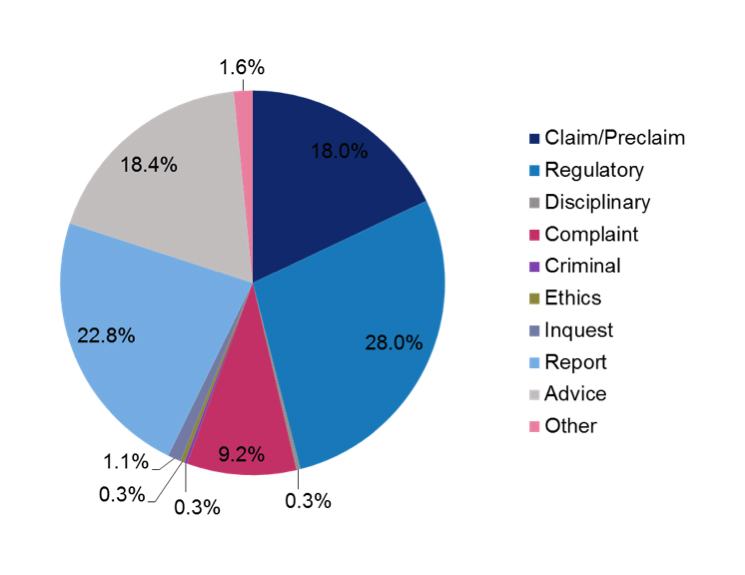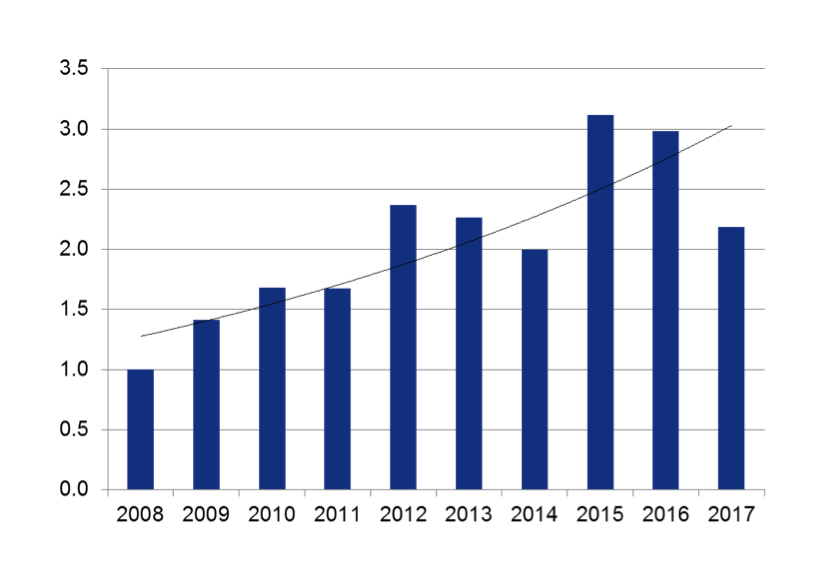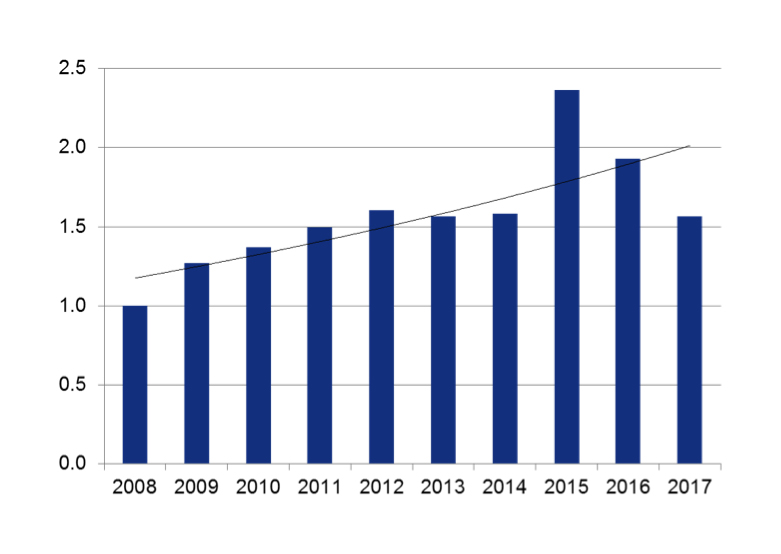Medical Protection took to the road recently to speak to members face-to-face on a range of topics pertinent to their practice in South Africa. Dr Graham Howarth is the head of medical services (Southern Africa) at Medical Protection, and here provides a round-up of the key talking points
Many members in South Africa will be familiar with the concept of an escalating cases and claims environment.
While it is true that clinicians are practising in an increasingly precarious medicolegal landscape, members of Medical Protection can be reassured that our six decades of experience in South Africa has allowed us to build up an accurate and comprehensive picture of this environment. Because we know the landscape better than anybody else, we have always had adequate reserves.Our approach to setting member subscriptions is that we don’t react to any one year’s data in isolation; we use our experience of long-term trends to forecast the potential future costs of providing members with the quality of defence, support and expertise that you expect from us.
Key trends in claims and other cases
It is important to make a distinction between what we define as “claims” and “cases”. Claims are allegations of clinical negligence that demand monetary recompense for any damages – physical or psychological – allegedly suffered. Cases, however, is the catch-all term for claims and the full range of other types of incidents and situations that members regularly call on Medical Protection for support with: patient complaints, HPCSA inquiries, disciplinary hearings by employers, inquests and criminal matters, not to mention the calls for advice with everyday ethical and medicolegal dilemmas.
Since 2008, cases (including claims) opened have increased 79.5%. The chart below shows the types of cases we handled between 2008 and 2017 – there has been a notable increase in HPCSA matters, while 46% of these cases required some form of legal defence. This, of course, has a cost implication.
Defence costs are something we have actively reduced over the last ten years, so much so that some of our external law firms in South Africa have stopped working with us – which demonstrates our unyielding commitment to controlling costs and managing members’ money responsibly.

Claims in pictures: the rising costs
The total cost incurred by claim year has increased by 118.6% since 2008:

The average cost incurred by claim year has increased by 57% since 2008:

In addition, we have a number of very high value current claims at over R20million and even one at R70m. These claims come from a range of specialties including obstetrics and gynaecology, trauma and orthopaedics and cardiothoracic surgery.
Claims: ongoing challenges
We understand members want certainty in how much they will pay for membership in any coming year, and our approach is to stabilise membership subscriptions as much as possible, setting prices according to the long-term trend and smoothing over any sudden fluctuations.
Detailed and robust actuarial work is undertaken, both in assessing trends in the types of cases and claims being reported in South Africa, and in the likelihood and level of future assistance needed for each area of practice.
The nature of negligence claims means that it can often be years before a case is brought and fully resolved. This is where a particular challenge is posed. In South Africa, the limitation period for bringing a claim of clinical negligence is three years from the date of knowledge – that is, the date on which a patient becomes aware of a problem.
At Medical Protection, around 3% of claims reported to us have arisen more than nine years after the incident. In some cases, the delay in reporting a claim has exceeded 20 years. It creates an extra challenge in what can already be a testing exercise, but it is one with which our 60 years of local experience hugely assists.
Staying local
As a not-for-profit organisation, owned by members, we exist purely for your benefit – there are no dividends to be paid to shareholders and all subscriptions are used for the benefit of the membership. As a mutual organisation, we have a long-term commitment to support members throughout their career, not a short-term requirement to generate profits for shareholders.
All subscription income generated in South Africa remains in South Africa. The vast majority is invested while some is spent on local frontline services, such as our regional offices in Cape Town and Johannesburg, our nationwide membership engagement teams, and our range of educational workshops and masterclasses that are delivered throughout the year, all across the country.